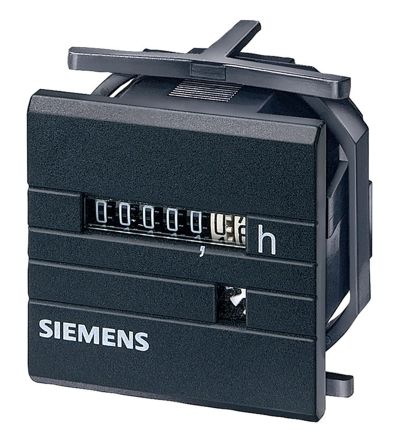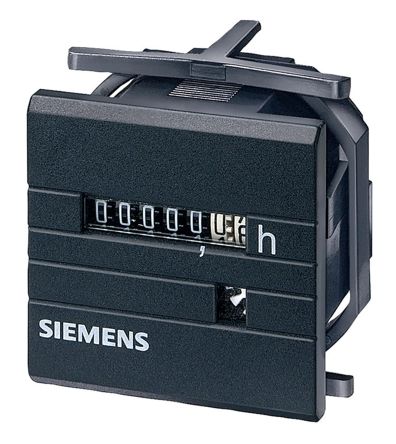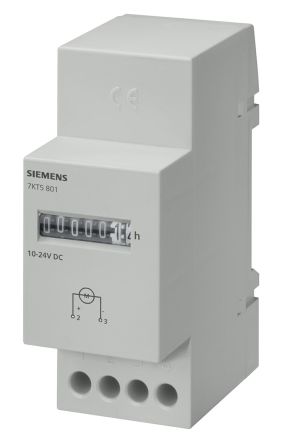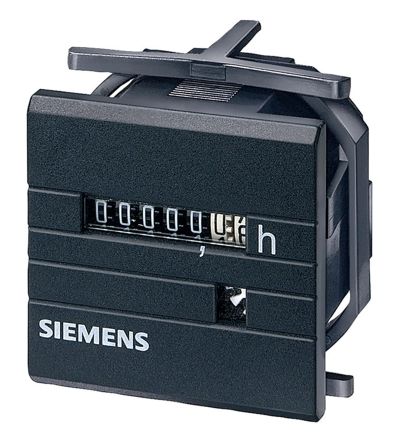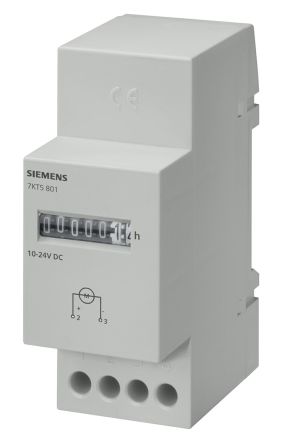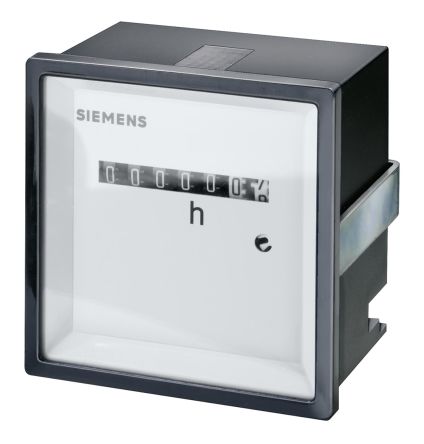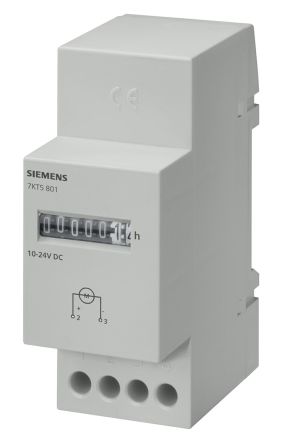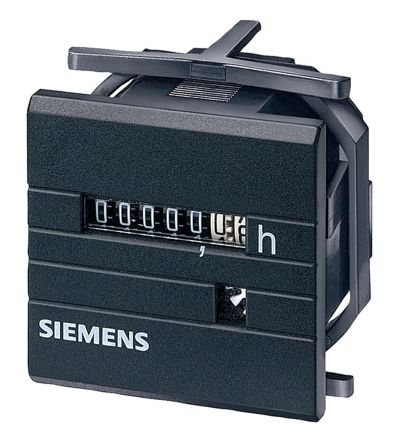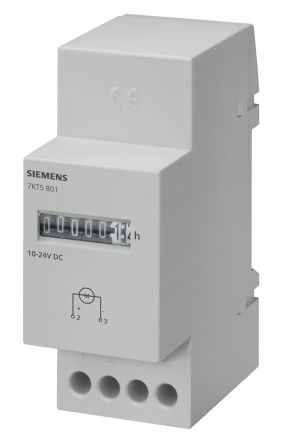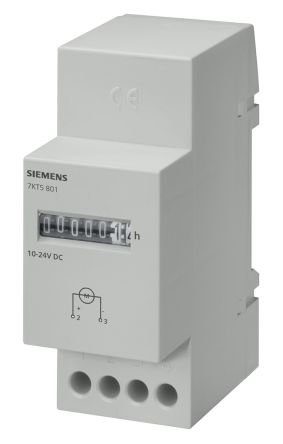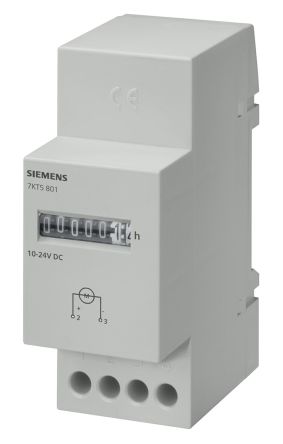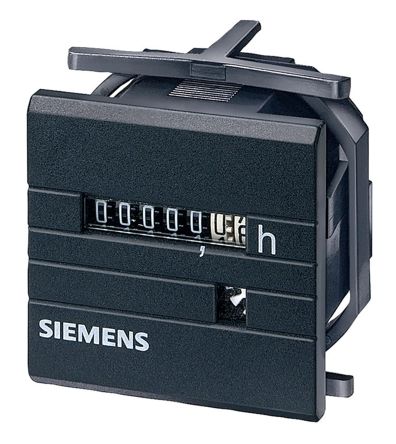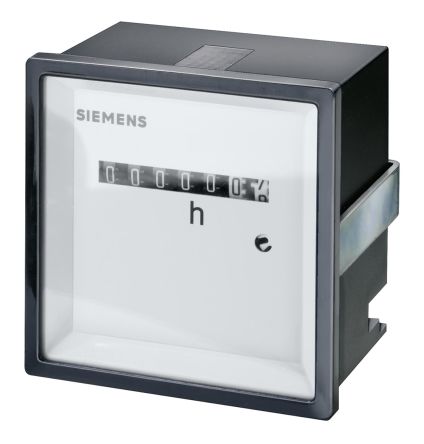- Automation & Control Gear
- Cables & Wires
- Enclosures & Server Racks
- Fuses & Circuit Breakers
- HVAC, Fans & Thermal Management
- Lighting
- Relays & Signal Conditioning
- Switches
- Batteries & Chargers
- Connectors
- Displays & Optoelectronics
- ESD Control, Cleanroom & PCB Prototyping
- Passive Components
- Power Supplies & Transformers
- Raspberry Pi, Arduino, ROCK, STEM Education & Development Tools
- Semiconductors
Siemens Counters
Counters are essential devices used to track and display the number of occurrences of a particular event or process. Digital counters utilise electronic circuits to count and display numerical values on a digital counter display, while electromechanical counters combine mechanical components with electrical circuits for reliable operation.
Functions of Counters
Digital counters, also known as electronic counter meters or hour meters, store and display the frequency of an occurring process, normally synchronised with a clock. For example, electronic counters in particular follow a sequential logic circuit which has a clock input signal. Counting devices may be used to measure:
- Length
- Impulses
- Time elapsed
- Position Indication
- Switching and control
Types of Counters
Digital counters
Digital counters are electronic in design and will often have a digital display. These counters work off a latching circuit or "flip-flop" when the time gets to the set value the relay will switch from 1 position to the next (flip), then the next pre-set value it will switch back (flop). It latches in each position and holds it so that current can flow.
Asynchronous or Ripple Counters
Asynchronous or ripple counters consist of a series of flip-flops that count incoming pulses, producing a binary output representing the total count.
Synchronous Counters
Synchronous counters offer improved reliability and high-speed operation by feeding clock pulses simultaneously to all flip-flops within the circuit.
Decade Counters
Decade counters are specifically designed to count decimal digits, making them suitable for applications requiring decimal representation.
Ring Counters
Ring counters utilise a circular arrangement of flip-flops, where the output of the last flip-flop is fed back into the first, creating a unique counting sequence.
Mechanical Counters
Mechanical counter meters are built using mechanical components, they typically consist of a series of disks mounted on an axle, with the digits 0 through 9 marked on their edge.
Hour Meters
Hour counters are instruments used to track and record elapsed time, normally displayed in hours and tenths of hours. Most hour meters are used to log the running time of equipment for proper maintenance of devices or machines.
How to Choose the Right Counter that Suits Your Needs
Consider these key factors when choosing a counter device for your specific application:
- Counting Range: Determine the maximum count your application requires to avoid counter overflow. Consider whether a 2-digit counter, 3-digit counter, or higher capacity digital counter or electromechanical counter is necessary to accurately track your process.
- Counting Mode and Functionality: Assess whether you need simple up-counting, down-counting, or the flexibility of bi-directional counting. Evaluate if advanced features like preset counting for batch control, or totalising for cumulative counts are required for your application.
- Input Types and Compatibility: Ensure the counter device is compatible with the specific signals generated by your equipment, whether they are contact closures from switches, voltage pulses from sensors, or encoder signals for precise position tracking. Verify compatibility with input voltage and current levels to avoid damage to the counter’s electronic components or connected devices.
- Display and Interface: Prioritise a clear and easily readable digital counter display, considering factors such as digit size and display technology (e.g., LCD or LED) based on your viewing distance and ambient lighting conditions.
Evaluate interface options like pushbuttons for manual control, rotary encoders for precise adjustments, or communication protocols for integration with larger systems.
- Environmental Conditions and Durability: Select a counter device with the appropriate environmental ratings to withstand the specific conditions of your application, considering temperature extremes, humidity, dust exposure, and potential vibrations.
Opt for robust options like electromechanical counters for harsh industrial settings or panel-mount digital counters for clean environments. If your application involves basic counting in a non-demanding setting, a mechanical counter meter might suffice.
Industrial Application of Counters
Counters are indispensable tools for measuring, monitoring and controlling various processes. Here are some ways they provide accurate and reliable data in the following industries:
- Automation: Optimising production through digital counters for precise tracking of product counts, machine cycles, and process durations.
- Machine Building: Ensuring equipment reliability with electromechanical counters for monitoring machine cycles, preventive maintenance scheduling, and component lifespan tracking.
- Energy Management: Monitoring and reducing energy consumption with electrical counter meters for precise measurement of energy usage, enabling data-driven efficiency improvements and cost savings.
- Medical: Safeguarding patient health with electronic counters for accurate dosage tracking in infusion pumps, ventilation cycles in respirators, and radiation exposure monitoring in imaging equipment.
- Transportation: Improving traffic flow and safety with digital counting devices for traffic monitoring systems, toll collection booths, and vehicle counting sensors at intersections.
Delivery Information
From 2-digit counters to 3-digit counters, digital, electronic, electromechanical, and even mechanical counter meters, RS Malaysia is your trusted counter supplier with a diverse selection from brands like Crouzet, Omron, Siemens and more. Shop counter devices and other process control equipment like data loggers with us. For a full overview of our delivery options, including estimated lead times and shipping costs, please visit our Delivery Page.
